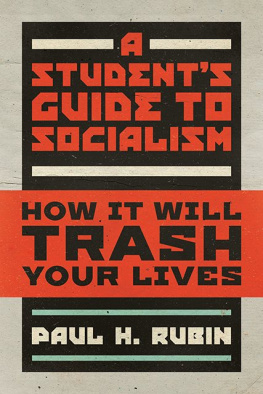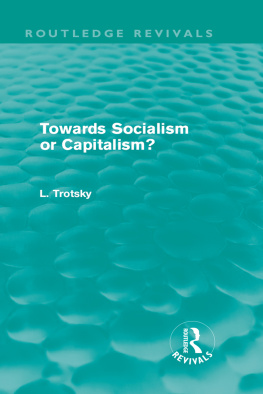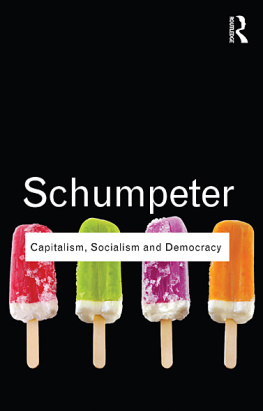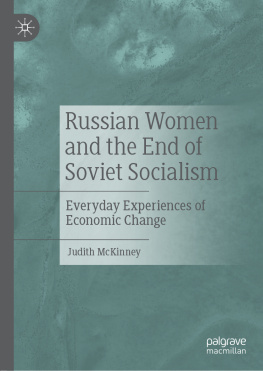Copyright 2018 by Kristen R. Ghodsee
Cover design by Pete Garceau
Cover illustration Heritage Images/Getty Images
Cover copyright 2018 Hachette Book Group, Inc.
Hachette Book Group supports the right to free expression and the value of copyright. The purpose of copyright is to encourage writers and artists to produce the creative works that enrich our culture.
The scanning, uploading, and distribution of this book without permission is a theft of the authors intellectual property. If you would like permission to use material from the book (other than for review purposes), please contact permissions@hbgusa.com. Thank you for your support of the authors rights.
Nation Books
116 East 16th Street, 8th Floor, New York, NY 10003
www.nationbooks.org
@NationBooks
First Edition: November 2018
Published by Nation Books, an imprint of Perseus Books, LLC, a subsidiary of Hachette Book Group, Inc.
Nation Books is a co-publishing venture of the Nation Institute and Perseus Books.
The Hachette Speakers Bureau provides a wide range of authors for speaking events. To find out more, go to www.hachettespeakersbureau.com or call (866) 376-6591.
The publisher is not responsible for websites (or their content) that are not owned by the publisher.
Library of Congress Cataloging-in-Publication Data
Names: Ghodsee, Kristen Rogheh, 1970 author.
Title: Why women have better sex under socialism : and other arguments for economic independence / Kristen R. Ghodsee.
Description: New York : Nation Books, [2018] | Includes bibliographical references and index.
Identifiers: LCCN 2018015743 (print) | LCCN 2018025535 (ebook) | ISBN 9781568588896 (ebook) | ISBN 9781568588902 (hardcover)
Subjects: LCSH: Women and socialismCommunist countries. | WomenEmploymentCommunist countries. | WomenCommunist countriesSocial conditions. | Womens rightsCommunist countries. | Motherhood--Communist countries.
Classification: LCC HX546 (ebook) | LCC HX546 .G476 2018 (print) | DDC 335.0082dc23
LC record available at https://lccn.loc.gov/2018015743
ISBNs: 978-1-56858-890-2 (hardcover), 978-1-56858-889-6 (ebook)
E3-20180927-JV-NF
CONTENTS
For Hayden, Jo, and Nana

Elena Lagadinova (right, with Angela Davis) (19302017): The youngest female partisan fighting against Bulgarias Nazi-allied monarchy during World War II. She earned her PhD in agrobiology and worked as a research scientist before she became the president of the Committee of the Bulgarian Womens Movement. Lagadinova led the Bulgarian delegation to the 1975 United Nations First World Conference on Women. Because free markets discriminate against those who bear children, Lagadinova believed that only state intervention could support women in their dual roles as workers and mothers. Courtesy of Elena Lagadinova.
F or the last twenty years, I have studied the social impacts of the political and economic transition from state socialism to capitalism in Eastern Europe. Although I first traveled through the region just months after the fall of the Berlin Wall in 1989, my professional interest began in 1997, when I started conducting research on the impacts of the collapse of communist ideology on ordinary people. First as a PhD student and later as a university professor, I lived for more than three years in Bulgaria and nineteen months in both eastern and western Germany. In the summer of 1990, I also spent two months traveling through Yugoslavia, Romania, Hungary, Czechoslovakia, and the soon-to-disappear German Democratic Republic. In the intervening years, Ive been a frequent visitor to Eastern Europe, delivering invited lectures in cities such as Belgrade, Bucharest, Budapest, and Warsaw. Because I often travel by car, bus, and train, Ive seen firsthand the ravages of neoliberal capitalism across the region: bleak landscapes pockmarked with the decrepit remains of once thriving factories giving way to new suburbs with Walmart-style megastores selling forty-two different types of shampoo. Ive also studied how the institution of unregulated free markets in Eastern Europe returned many women to a subordinate status, economically dependent on men.
Since 2004, Ive published six scholarly books and over three dozen articles and essays, using empirical evidence gathered from archives, interviews, and extended ethnographic fieldwork in the region. In this book, I draw on over twenty years of research and teaching to write an introductory primer for a general audience interested in European socialist feminist theories, the experience of twentieth-century state socialism, and their lessons for the present day. After the unexpected success of Bernie Sanders in the 2016 Democratic primaries, socialist ideas are circulating more broadly among the American public. It is essential that we pause and learn from the experiences of the past, examining both good and bad. Because I believe in the pursuit of historical nuance, and that there were some redeeming qualities of state socialism, I will inevitably be accused of being an apologist for Stalinism. Vitriolic ad hominem attacks are the reality of our hyperpolarized political climate, and I find it quite ironic that those who claim to abhor totalitarianism have no trouble silencing speech or unleashing hysterical Twitter mobs. The German political theorist Rosa Luxemburg once said: Freedom is always and exclusively freedom for the one who thinks differently. This book is about learning to think differently with regard to the state socialist past, our neoliberal capitalist present, and the path to our collective future.
Throughout this book, I use the term state socialism or state socialist to refer to the states of Eastern Europe and the Soviet Union dominated by ruling Communist Parties where political freedoms were curtailed. I use the term democratic socialism or democratic socialist to refer to countries where socialist principles are championed by parties that compete in free and fair elections and where political rights are maintained. Although many parties referred to themselves as communist, that term denotes the ideal of a society where all economic assets are collectively owned and the state and law have withered away. In no case has real communism been achieved, and therefore I try to avoid this term when referring to actually existing states.
On the topic of semantics, I have also endeavored to be sensitive to contemporary intersectional vocabularies. For example, when I talk about women in this book, I am primarily referring to cisgender women. The nineteenth- and twentieth-century socialist woman question did not consider the unique needs of trans women, but I have no desire to exclude or alienate trans women from the current discussion. Similarly, in my discussion of maternity, I do recognize that I am discussing those who are female-assigned-at-birth (FAB), but for the sake of simplicity, I use the word woman even though this category includes some who identify as men or other genders.
Because this is an introductory book, there will be places in the text where I dont go into full detail about the debates surrounding topics such as Universal Basic Income (UBI), surplus value extraction, or gender-based quotas. In particular, although I believe that they are absolutely essential, I dont spend a lot of time discussing universal single-payer health care or free public postsecondary education, because I feel these policies have been discussed at length elsewhere. I hope readers are inspired to explore more about the issues raised within these pages, taking this book as an invitation for further exploration of the intersections of socialism and feminism. I also want to make it clear that this is not a scholarly treatise; those in search of theoretical frameworks and methodological debates should consult the books Ive published with university presses. I also recognize the long and important tradition of Western socialist feminism, although it is not discussed in these pages. I encourage interested readers to refer to the books listed in the suggestions for further reading.














